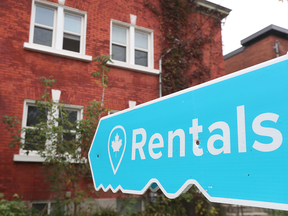Canadian Home Prices Dropping: Shift towards Renting Due to Rising Costs
Introduction
In the aftermath of the pandemic, Canadian home prices have experienced a significant decline, reaching 18.5% below their February peak. This downturn is attributed to the rapid rise in borrowing costs, which has significantly impacted the real estate market. As a result, demand for rental properties has surged, while homeownership has become increasingly challenging due to higher mortgage qualifying rates.
Impact of Rising Mortgage Rates
The surge in mortgage interest rates has had far-reaching effects on the Canadian housing market. Homeowners who took out variable-rate loans or those nearing the renewal of their mortgages are particularly affected. These rising costs have made it difficult for would-be buyers to secure loans, further straining the housing market.
Shift from Homeownership to Renting
The demand for rental properties has escalated due to several factors. First and foremost is the higher cost of homeownership itself. As average home prices dropped by 18.5% since their February peak, many potential buyers are forced to consider renting instead. Real estate agents highlight a significant increase in inquiries about rental properties, with many renters unable to find satisfactory accommodations due to the tight market.
Financial Strain on Homeowners
The financial strain imposed by higher mortgage costs is evident in the data from the Canadian Real Estate Association (CREA). CREA reports that homeowners’ replacement cost increases have slowed sharply to 10% from 13% in April, indicating a stabilization in home price trends. However, this stabilization does not reflect the ongoing challenges faced by those seeking to buy homes.
Economic Factors Influencing the Market
The economic landscape is further complicated by the impact of mortgage qualifying rates on the rental market. As mentioned earlier, higher interest rates have led to increased demand for rental properties, with many renters unable to find affordable housing options. This trend is particularly pronounced in urban areas, where competition for limited housing has driven up rents.
Future Implications
The shift towards renting is expected to continue as long as mortgage rates remain elevated. Experts predict that the remainder of 2023 may see further increases in rental demand, especially in cities with growing populations and tight housing markets. Urban living remains a primary draw for many Canadians, as suburban areas struggle to keep up with rising home prices.
Conclusion
In summary, the Canadian housing market is navigating a complex landscape marked by rising mortgage rates, higher home prices, and increased demand for rental properties. As these trends continue to evolve, understanding their implications will be crucial for both buyers and renters in the coming years.



